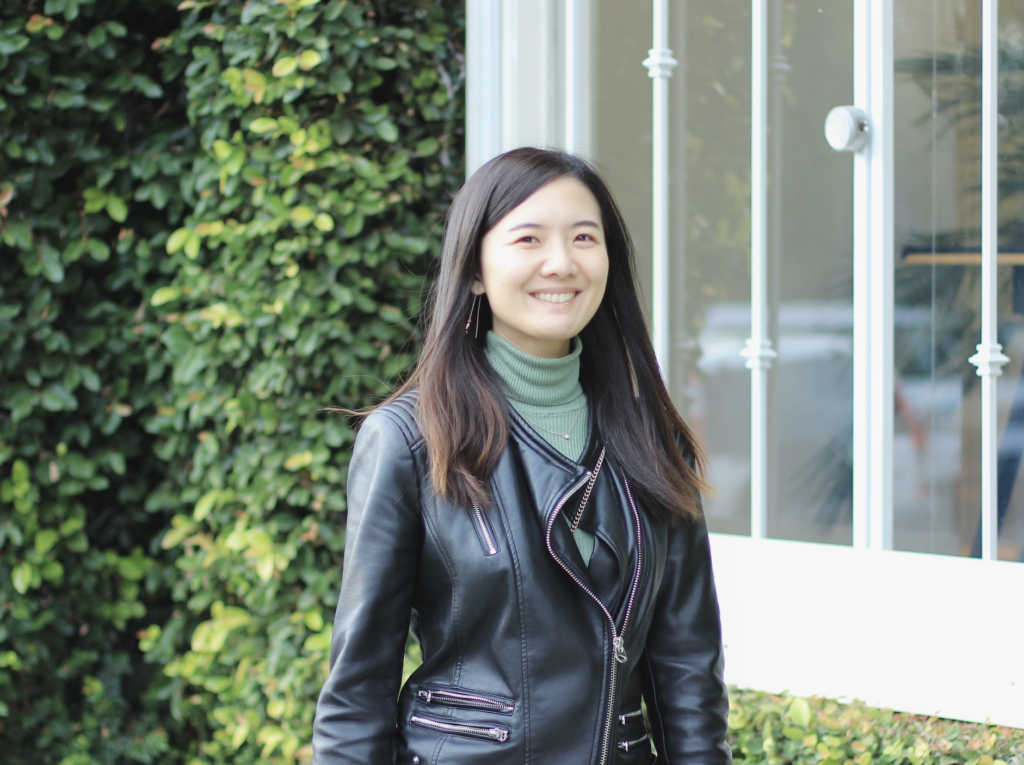Post by Stephen Horowitz, Professor of Legal English
Here’s what the Georgetown Legal English faculty have been up to over the summer….
Craig Hoffman

Professor Hoffman gave a talk at the U.S. Supreme Court in early August. He was invited by the Association of the Reporters of Judicial Decisions, whose annual meeting was held at the Supreme Court. He was asked to speak about Language and Law and specifically about his paper, Parse the Sentence First: Curbing the Urge to Resort to the Dictionary When Interpreting Legal Texts. (Additionally, he also managed to get the New York Reporter of Decisions to send him an opinion from a New York trial court that the Georgetown Law librarians had been seeking!)

Heather Weger
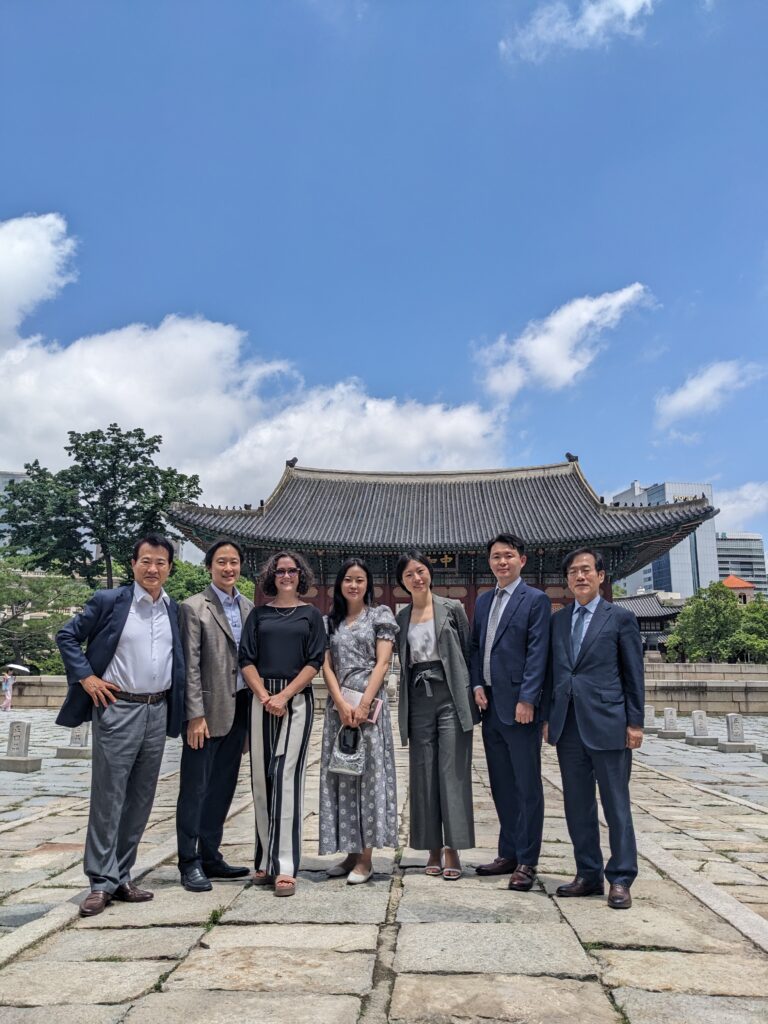
Summer 2023 was packed with legal English endeavors! A highlight was meeting up with LL.M. and J.D. alumni during a visit to South Korea, generously hosted by Law Center alumnus, Chairman Seung-Hoon Lee .
The opportunity to connect with our multilingual community in a global setting affirms the legacy of the Georgetown experience. I was delighted to share insights about our Two-Year LL.M. program with these colleagues and welcome two of our incoming students.
Back in the U.S., I’ve been excitedly working on the release of the next issue of AL Forum, the Applied Linguistic Newsletter for TESOL, a publication I co-edit with Dr. Natalia Dolgova. This issue will explore the impacts of artificial intelligence (AI), such as the emergent use of ChatGPT, on educational practices; it includes articles from Georgetown colleagues Professor Stephen Horowitz and Technology Specialist Ellery Boatright.
Research also found a way into the summer! Professor Julie Lake and I are collaborating on upcoming conference presentations and publications that focus on integrating asset-based pedagogical practices into Legal English education. As this busy summer wraps up, I look forward to an even busier school year!
Julie Lake

Professor Lake had a wonderful summer traveling around the U.S. with her husband and daughter. She spent a week at Cape May, NJ at the beach, a week in Chapel Hill, NC, and a week in Philadelphia, PA.
During her summer she made progress on her personal “language-based” summer project to learn Spanish. Language learning is a lifetime journey!
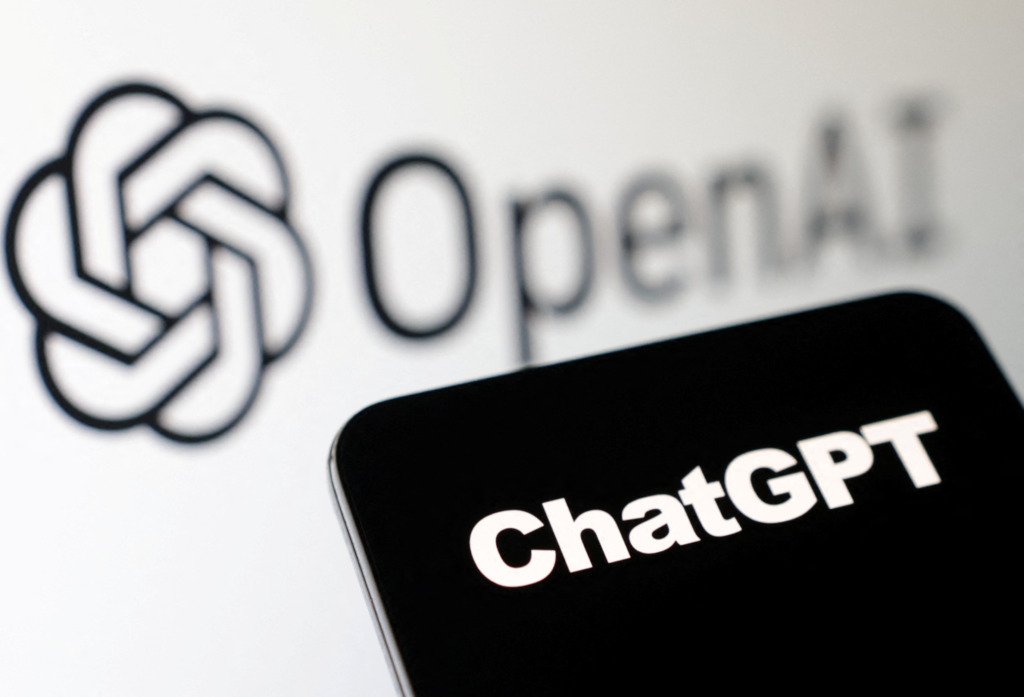
Professor Lake also spent time working with Professor Weger to revise the language-focused curriculum for Fundamentals of Legal Writing for the 2023-2024 academic year. In Fall 2023, incoming Two-Year students will learn how to use language-based strategies to craft a high-quality memo (i.e., a lawyer-to-lawyer document). In Spring 2024, incoming Two-Year students will learn about the scholarly writing genre and how to write a high-quality mini-scholarly legal research paper.
And finally, Professor Lake enjoyed researching productive ways to use ChatGPT as a learning tool for law and linguistic students.
John Dundon

Professor Dundon began his summer by presenting at the Sixth International Language & Law Conference at the University of Bialystok Faculty of Law in Bialystok, Poland in June (see prior post).
He then taught a summer class, Introduction to U.S. Contract Drafting and Interpretation at IE University Law School in Madrid, Spain, where he has taught for the past three summers.
In July, Professor Dundon presented a paper, When multilingual litigants encounter monolingual ideologies in U.S. judicial opinions, at the Twelfth Bonn Applied Linguistics Conference in Bonn, Germany; he’s been invited back to Bonn to appear as a discussant in a conference focused on legal discourse, taking place in September (more on that in a future post).
He also traveled in Morocco, Uzbekistan and Tajikistan with family, before returning to Georgetown to teach U.S. Legal Research, Analysis, and Writing as part of the LL.M. Summer Experience program.
Professor Dundon ended the summer with a presentation at Georgetown Law’s faculty summer research workshop, where he spoke about his paper “A shifting precipice of unsettled law?”: A survey of how U.S. courts treat expert testimony using forensic stylistics, which was published this month in the International Journal of Speech, Language and the Law.
Yi Song

1. Summer Teaching
Professor Yi Song taught two courses during the Summer Experience – “Foundations for American Law” (co-teaching with Professor Michael Cedrone) and her summer stable, “U.S. Legal Research, Analysis and Writing.”
She’s especially proud of being responsible for the idea of the group assignment for the Foundations class.
- In July 2023, 102 international lawyers from around the world walked into McDonough 203 as strangers.
- They were asked to form 10 groups to present before class “What I have learned from the Foundations so far.”
- In the subsequent 10 days, we saw history reenacted as Marbury v. Madison came alive.
- Like most historic events, it all began with a fateful night at the bar.
- The foundations of the American legal system were reimagined in the multiverse with the prompt “what if the Founding Fathers were_____?”
- An uncanny Professor Cedrone Impersonator? A jury trial, where a top international model found herself in the midst of legal dramas? A tort case that occurred on the premises of Georgetown Law, inspired by the Office-style-behind-the-scene footage?
- When Dean Treanor came in one morning for a surprise visit, Prof. Song regretted that she forgot to take a group class selfie with him. But the one she got with Professor Cedrone still came out pretty good.
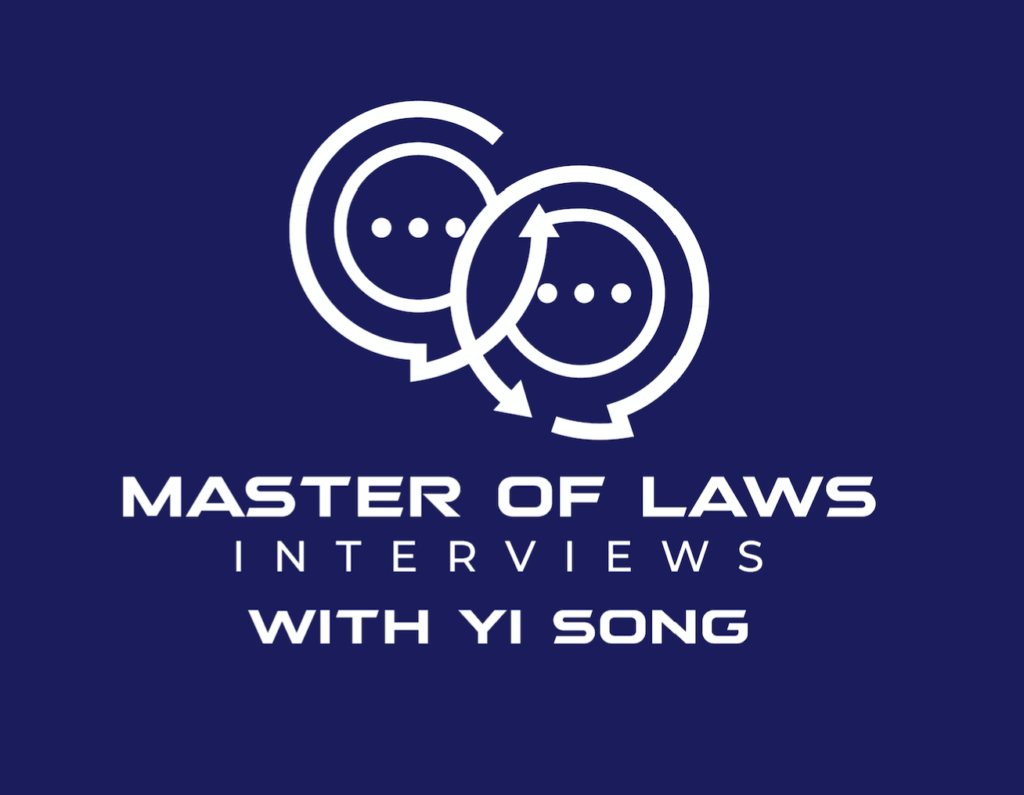
2. Professor Song’s Master of Laws Interviews Project
Master of Laws Interviews Project has come to the classroom this summer. Season 2 is being recorded now. Stay tuned for the Fascinating journeys such as how a lawyer got hired and became the first shareholder with international background in a firm’s 137 year history; How a former star student from legal research and writing class successfully turned her externship into the international associate position at BigLaw. And more!
Michelle Ueland
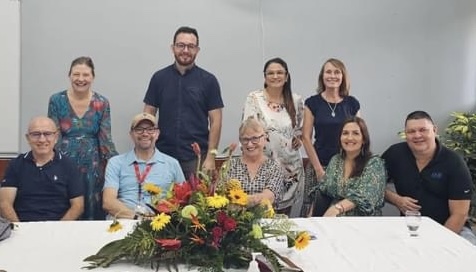
I was an invited keynote speaker for this conference in Costa Rica (at a branch campus of my MA alma mater, la Universidad Nacional) on August 17 & 18. I gave two presentations (#1 and #2 below) and the closing plenary (#3).
1. “Advancing Listening and Speaking Skills in English for Specific Purposes (ESP) Classrooms”

2. “In Your Voice and In Your Shoes: Experiencing Sanaz Toossi’s Pulitzer-prize-winning play “English”
3. “What’s all the chatter about? Writing educators’ pedagogical responses to generative artificial intelligence (AI) products like ChatGPT-3.5”
Mari Sakai

I presented at the Global Legal Skills Conference at Nottingham Law School at Nottingham Trent University, England (July 30-Aug 1, 2023). My presentation was titled “Addressing international law students’ pronunciation needs: Best-practices informed by linguistics research and pedagogy.”
Abstract
- Although professors notice issues in their international students’ speech, they may not feel equipped to address them. This presentation will cover four research-based, best practices for teaching second language (L2) pronunciation: orienting towards intelligibility, creating task-based lessons, increasing talk-time, and giving feedback.
- Many L2 speakers express a desire to “eliminate their accents”, however, accents carry valuable information of our diverse identities and experiences. Teachers can instead help students reorient towards the crucial feature of communication called intelligibility, which asks if the listener received the message the speaker intended to convey. Oral skills can then be addressed through task-based teaching, which focuses on tasks students face (e.g., oral case briefs, negotiations) and guides them through the language necessary to complete them. Third, increasing the amount of productive (versus receptive) interactions in the target language will help students to see progress more rapidly. One suggestion is assigning a video reflection after observing courtroom proceedings. Finally, explicit pronunciation feedback can be a salient tool for progress. Feedback can focus on unintelligible speech, articulation of a sound, and spoken grammar.
- These four approaches can be applied in any classroom around the world. Digital access to all teaching materials will be provided.

Also,….
- A fun tidbit about the city was that it is the birth place of the Robin Hood lore, and there is actually a real Sheriff of Nottingham position (from what I learned, it’s apparently similar to Mayor).
- The current Sheriff is the first Asian woman to hold the position, and we learned from her that all the city buses and trams are electric vehicles too.
- GLS was a great small conference, and next year it will be in Bari, Italy!
Stephen Horowitz

*Collaborated with a USAID Ukrainian representative to establish online legal English training programs for Ukrainian law faculty starting in Fall 2023. The effort has involved identifying interested US legal English instructors and matching their areas of expertise with the interests of Ukrainian law faculty.
*Set up assessments (pro bono) for female judges from Afghanistan preparing to enter LLM programs at US law schools. The project, which involved collaboration with Prof. Daniel Edelson (Seton Hall/USLawEssentials.com) and Prof. Lindsey Kurtz (Penn State Law), was at the request of an ABA initiative working to mentor and support female Afghan judges.
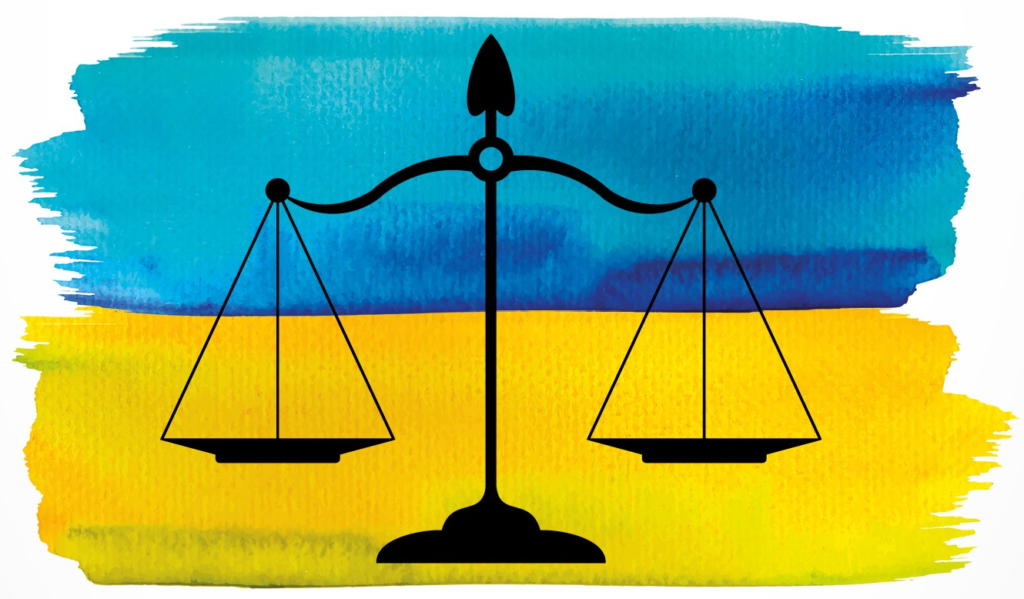
*Taught a 4-week online Bar Exam Essay Writing for LLM Students course during May/June, in collaboration with Prof. Daniel Edelson. The mission (and experiment) was to make the course accessible to any LLM or non-native English speaking law student, regardless of ability to pay, and it worked well. A second section of the course had to be created to accommodate excessive demand.
*Released a USLawEssentials Law & Language podcast interview with Seongryol Ryan Park, a graduate of Georgetown Law’s National Security Law LLM program, who previously worked for South Korea’s Ministry of Unification and now serves as Assistant Secretary to the President for International Public Relations.

*Set up the Tax Legal English Resources page on the Georgetown Legal English Blog.
*Wrote a soon-to-be published article abou for AL Forum, the Applied Linguistic Newsletter for TESOL, about using ChatGPT to create tax vocabulary practice activities.
*Invited to guest lecture (via Zoom) for a legal English course at Keio University in Tokyo, Japan during the fall 2023 semester.

*Had the opportunity to meet visiting scholar Professor Anna Yan, who teaches law at National Chengchi University in Taiwan and show her the new Legal English faculty offices in McDonough 477.
*Sadly was unable to attend the Global Legal Skills Conference in Nottingham, UK, July 30-Aug 1, which some attendees have shared was really fantastic. But hoping to attend the 2024 GLS Conference in Barri, Italy.
*Fortunate to have had a family vacation in July in a small town (Puerto Morelos) on the Yucatan Peninsula in Mexico, which was a very positive linguistic experience and first time out of the US for my children.



